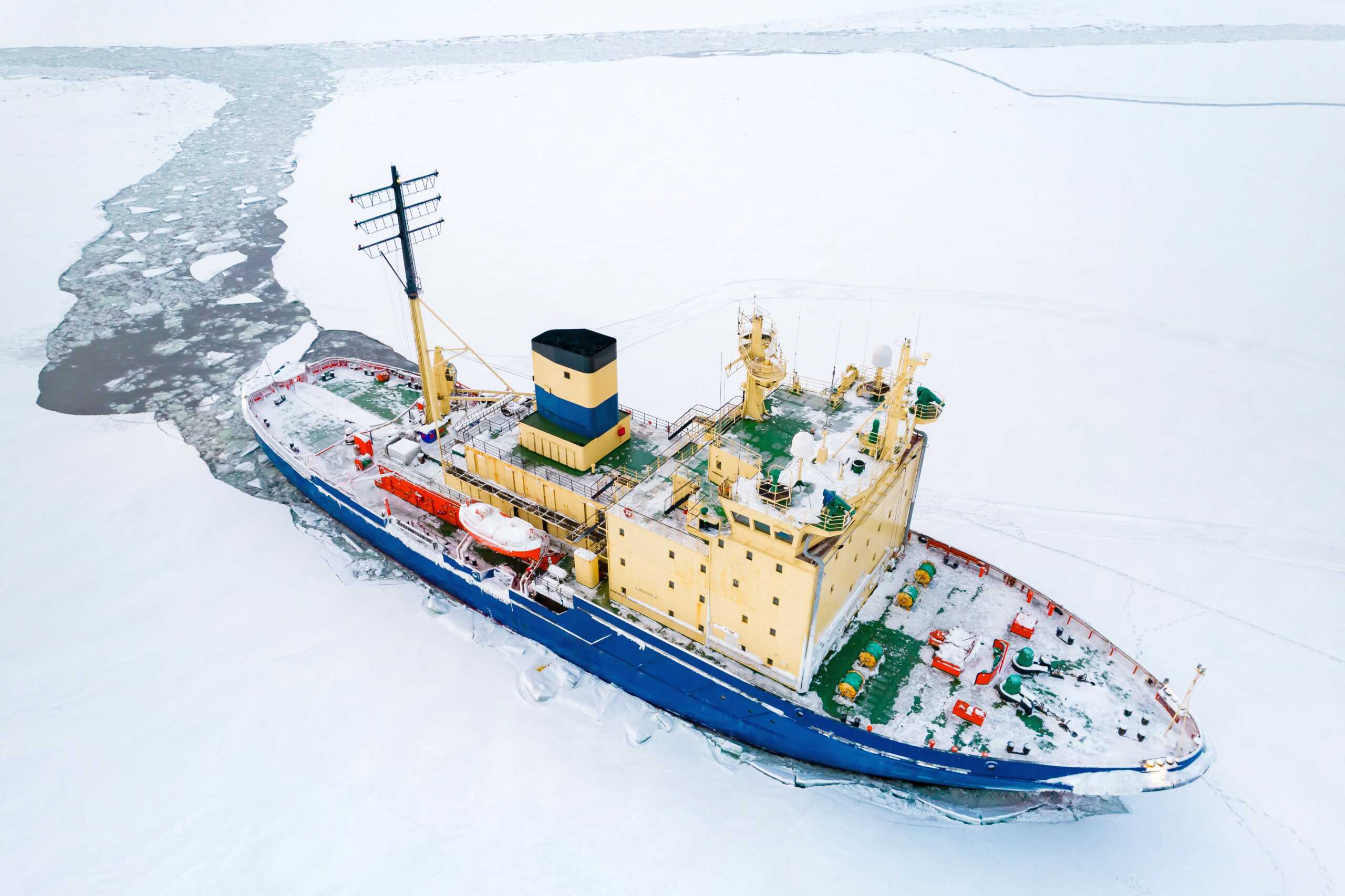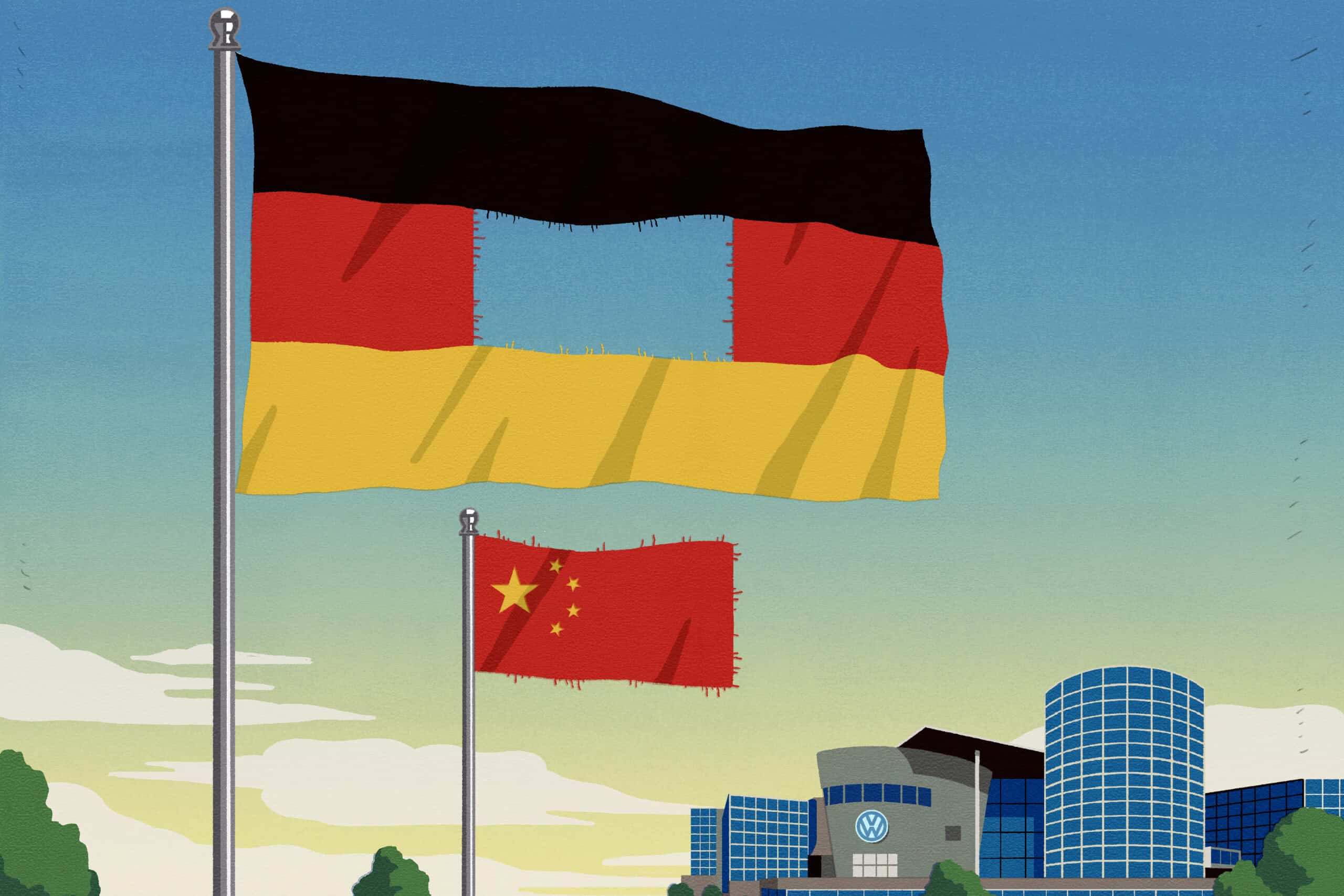
Russia’s ongoing invasion of Ukraine has led to a shift in its relations with China in the Arctic region, leading to cooperation on investments in energy and shipping — and stoking Western fears about its security interests in the icy North.
New data shows a sharp recent rise in the number of China-linked companies set up to invest in sectors such as energy exploration and development of new shipping routes. In the first six months of 2023 alone, 123 new Chinese-owned companies registered to do business in the Russian-controlled Arctic, compared to 48 for the whole of 2020, according to data from geopolitical intelligence firm Strider Technologies.
Satellite images meanwhile show that some Russian energy projects targeted by U.S. sanctions have been kept running only with the help of Chinese technology.

This growing corporate cooperation in one of the world’s most remote regions reflects the change in Russia’s approach towards China’s Arctic presence brought on by the geopolitical upheaval of the last decade.
“They [the Russians] see the Arctic as their sovereign domain and a place where they’ve operated for centuries and they would prefer not to have anybody else looking to exploit the Arctic,” says Jeremy Mathis, adjunct professor at the Center for Security Studies at Georgetown University.
But, Mathis adds, Russian thinking began to shift after its annexation of Crimea in 2014 and the sweeping Western sanctions that followed. Prior to that, Moscow had been resistant even to the idea of China becoming an observer state in the eight-member Arctic Council, a multilateral body for countries in the region to discuss shared issues including climate change and indigenous community welfare. China acquired that status in 2013.
Today, as Russia faces further isolation in the Arctic Council because of its invasion of Ukraine, it has become more welcoming of Chinese influence and investment, particularly in the vital energy sector. Sweden’s upcoming accession to NATO will leave Russia as the only Arctic country outside the military alliance.
“Russia needs China as a consumer of and a source of engineering technology, and China wants access to cheap oil and cheap natural gas,” adds Mathis. “It has been a marriage that both countries were reluctant to enter into, but now that they have, we’ve seen the alignment between them really start to grow.”

The evolution in Russia’s approach has coincided with China’s growing desire for influence over the Arctic, a region it sees as valuable for oil, gas and rare earth procurement, as well as for the emerging commercial fishing industry in the Arctic.
In 2018, China’s State Council published its first white paper setting out an Arctic policy and identifying itself as a “near-Arctic state” despite being located just shy of 1,500 kilometers from the Arctic circle. The then-Secretary of State Mike Pompeo rejected this designation outright.
The following year, state-owned China National Petroleum Corporation (CNPC) and China National Offshore Oil Corporation (CNOOC), spent a combined $4 billion for a 10 percent stake each in Arctic Liquified Natural Gas (LNG) 2 project, a major Russian project in northern Siberia which is projected to produce 19.5 million tons of LNG annually at full capacity, according to the U.S. Energy Information Administration, making it one of the world’s largest gas reserves.

Satellite imagery from Russia’s Gydan peninsula shows the project’s development continued between 2020 and 2023 following the Chinese investment, despite Western sanctions against Russia.
“As the project lost access to Western technology following Russia’s full-scale invasion of Ukraine, the PRC has stepped in to fill the gap by providing key technology, such as gas turbines,” the Strider report says.
Some observers caution that it is still unclear how much free rein newly registered Chinese companies will have to operate in the Russian Arctic.
“I wonder whether these Chinese companies that are registering are there just basically as placeholders,” says Marc Lanteigne, professor of political science at the Arctic University of Norway. “Will they actually participate in any serious Arctic development projects and, more to the point, will Russia let them?”

Still, Russia’s leader Vladimir Putin appears to be on board with Chinese investment. Putin has said that he sees promise in cooperating with Chinese partners to develop the Northern Sea Route (NSR) — an Arctic marine route that traverses Russia’s northern coastline — into a viable shipping lane.
Ships from Chinese state-owned COSCO made a total of 56 voyages from China to Europe via the NSR from 2013 to 2021. The company has said that using this route saves an average of ten days of travel time per voyage compared to those going through the Suez Canal route.

In October 2023, Putin announced that the NSR would be open for shipping all year round starting this year, a move made possible by climate change reducing the amount of sea ice in the Arctic. Three months earlier, a Chinese shipping company, Hainan Yangpu New New Shipping, launched the first regularly scheduled cargo service operating in the NSR, traveling from Saint Petersburg in western Russia to the eastern Chinese port city of Qingdao, according to shipping market intelligence firm Linerlytica.

Here again, there are nuances in the picture of growing Sino-Russian cooperation.
“The amount of Chinese shipping using the NSR has gone down quite a bit [since the Russian invasion of Ukraine], says Lanteigne. “COSCO has been very wary about sending its ships through, risking Western sanctions.”
“Right now, China’s playing a bit of a waiting game. They’re trying to gauge: at what point can we start sending more shipping through the NSR without triggering a Western response?” he adds.
Russia’s desire for China to be a long-term partner in the Arctic may be limited in other areas, experts say.
…if Russia pulls out of the Arctic Council and then aligns with China over Arctic interests — that could be something that NATO and the United States would really have to think about.
Jeremy Mathis, adjunct professor at the Center for Security Studies at Georgetown University
China “is a huge fishing nation, and they have already said that they will need to look to the Arctic for fisheries,” says Julie Gourley, who served as the U.S. Senior Arctic Official from 2005 to 2019. “Russia will always see everyone as competitors for fish, so I don’t think it will share any of its fish stocks with China.”
Still, the broader geopolitical pressures at play could yet push Russia closer to China in the Arctic. Russia’s Arctic ambassador, Nikolay Korchunov, told state media this month that it could withdraw from the Arctic Council if its activities don’t conform to the country’s national interests.
“Given the vast size that Russia occupies in the Arctic, if Russia pulls out of the Arctic Council and then aligns with China over Arctic interests — that could be something that NATO and the United States would really have to think about,” says Mathis from Georgetown University.
This prospect is spurring proposals for reform of the Arctic Council to expand its remit beyond scientific collaboration to also include security cooperation.
“There is a need to revisit the Arctic Council’s terms of reference to include hard security issues,” says Mats Engman, distinguished military fellow at the Stockholm-based Institute for Security and Development Policy. “We are witnessing a general increase in military activity in the Arctic region and if you look at the trajectory of any kind of missiles being fired from Asia over to the U.S. continent or vice versa, they all traverse the Arctic.”

Aaron Mc Nicholas is a staff writer at The Wire based in Washington DC. He was previously based in Hong Kong, where he worked at Bloomberg and at Storyful, a news agency dedicated to verifying newsworthy social media content. He earned a Master of Arts in Asian Studies at Georgetown University and a Bachelor of Arts in Journalism from Dublin City University in Ireland.




